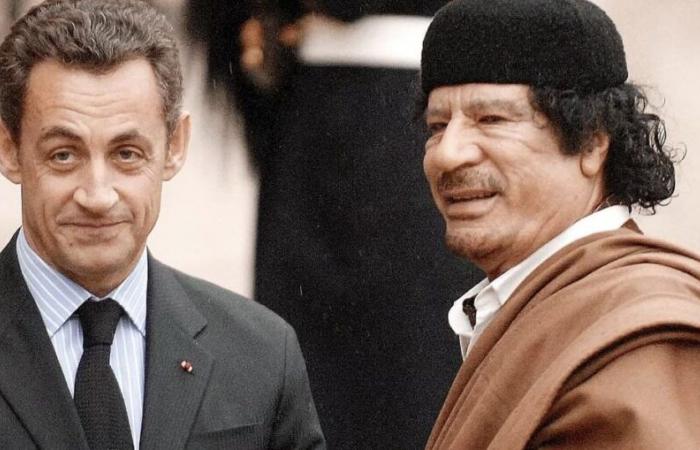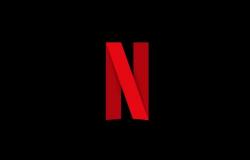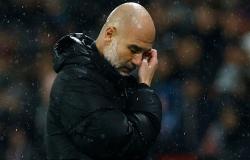
Was Nicolas Sarkozy’s victorious campaign in 2007 financed by Libyan dictator Muammar Gaddafi? The former President of the Republic will return to court, from this Monday, January 6, to respond, with several former ministers, to suspicions of international corruption
The singularity of Muammar Gaddafi’s regime, in search of respectability on the diplomatic scene in the 2000s, fueled suspicions of Libyan financing of Nicolas Sarkozy’s presidential electoral campaign, which French justice will look into starting this Monday. The former President of the Republic, Nicolas Sarkozy, will have to answer, along with several former ministers, for suspicions of international corruption. The trial will end on April 10, 2025.
Opacity
When Nicolas Sarkozy entered the Élysée in 2007, “we must remember that in Libya, we are facing a state of lawlessness,” says Hasni Abidi, director of the Center for Studies on the Arab World and Mediterranean. There were “the men of the tent”, the heads of internal intelligence making up a restricted circle surrounded by “total opacity”, and who exchanged with another restricted circle, that of those close to Nicolas Sarkozy, explains the expert.
“The general popular congress – equivalent of Parliament – had absolutely no power or control over the decisions taken by Gaddafi’s entourage,” he adds.
“Suitcases of cash”
The diplomat Patrick Haimzadeh, author of the book “At the heart of Gaddafi’s Libya” (Éditions JC Lattès), knows the Libyan regime well having been stationed in Tripoli from 2001 to 2004. “It was customary for the regime Gaddafi to finance foreign heads of state and politicians in power or in the opposition, most often in the form of suitcases of cash,” he asserts, without detour. “From there to saying that Nicolas Sarkozy benefited from it, it is up to French justice to decide,” he continues cautiously.
He recalls that the relaunch of dialogue between France and Libya began well before the presidency of Nicolas Sarkozy (2007-2012).
The process began under Jacques Chirac, in 2001, when Gaddafi strongly condemned the September 11 attacks, a radical change of posture while the Libyan regime was itself accused of involvement in the Lockerbie attacks (December 1988) and of UTA’s DC 10 (September 1989), which caused hundreds of victims and earned Tripoli an international embargo.
However, “on the French side, numerous reservations remain, due to pending litigation and UN, European and national sanctions still in force,” underlines Patrick Haimzadeh. Paris then explores “areas of cooperation” but only in non-strategic areas such as culture or tourism.
«Canal direct»
Then, “during 2005, a security attaché seconded from the Ministry of the Interior was assigned to the French embassy in Tripoli, thus establishing a direct channel of relations between the Ministry of the Interior and Libyan security officials,” explains the diplomat.
And “it was with the arrival of Nicolas Sarkozy at the Élysée in 2007 that the relationship took a new turn with the opening of new areas of cooperation and prospects for important contracts, particularly in the military field,” continues -he.
The Libyan colonel’s state visit to Paris in December 2007 was also supposed to be an opportunity to sign billions of euros in contracts. This will never come to fruition, leading to a strain in the relationship, analyzes Hasni Abidi.
Because “Libya is a virgin country. Everything has to be built. Oil deposits are very important. The country also has gold and silver reserves, which make all Western chancelleries salivate,” he explains.
-Rehabilitation “through the front door”
On the Libyan side, Gaddafi, in power since 1969, has “an obsession”: regaining a form of legitimacy with the West. Pitching his tent, at the end of 2007, in the gardens of the official residence of the Hôtel Marigny obviously offered him a “rehabilitation through the front door”, underlines Hasni Abidi.
The dictator was to stay three days in Paris, he played overtime, receiving, in turn, intellectuals, artists and politicians. Without French industrialists reaping the benefits.
The bilateral relationship had, however, been marked by an initial period of “euphoria”, on the French side, describes Jalel Harchaoui, associate researcher at the British institute Royal United Services.
In the summer of 2007, Nicolas Sarkozy succeeded in freeing, after eight years of imprisonment and torture, five Bulgarian nurses and a Palestinian doctor accused of having inoculated the AIDS virus into hundreds of Libyan children. .
Then, Colonel Gaddafi turns out to be tough in business.
Decline and fall
In addition, the Libyan regime is struck by “a form of decadence”, explains Jalel Harchaoui. “Corruption is reaching unprecedented levels: Gaddafi, who prided himself on being able to control it, no longer has control,” he said. “There is a sort of slow deterioration in the situation with Gaddafi’s right-hand men leaving the ship, some to take refuge in France.”
In March 2011, one of Gaddafi’s sons, Seif Al-Islam, launched a bomb: “Sarkozy must return the money he accepted from Libya to finance his electoral campaign.” “I believe it is entirely plausible” that Nicolas Sarkozy’s campaign was financed by the Libyan regime “because there was this tradition where African tyrants were able to buy politicians in France,” underlines Jalel Harchaoui, with reference, in particular, to to suspicions of financing, by the former Gabonese president Omar Bongo, of electoral campaigns in France, such as that of Jacques Chirac, in 1981. The latter had denied.
“On the other hand, it is absurd to believe that the United States led the military intervention against Gaddafi in 2011, simply to please a President Sarkozy keen to cover up the financing affair,” he concludes.
In March 2011, the United Nations Security Council authorized the use of force in Libya to protect civilian populations from Gaddafi’s troops. In August, rebels seize power in Tripoli. At the end of October, Muammar Gaddafi, on the run, was captured and killed near Sirte. Since then, Libya has been plagued by violence and chaos.
Source AFP
Par The editorial staffEditorial Committee – Casablanca





